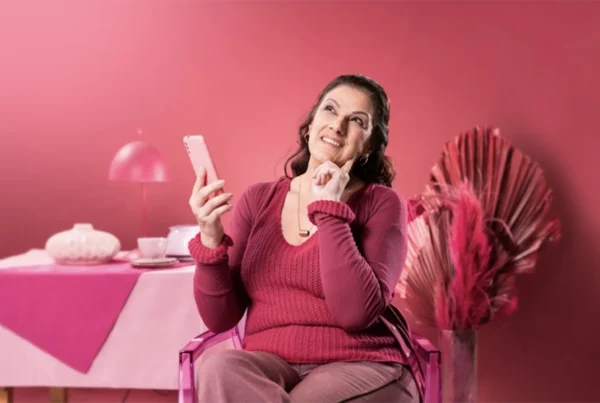When I first sat down to interview Dr. Sarah Hill, author of This Is Your Brain on Birth Control, I wasn’t entirely sure what to expect. As someone who has always been fascinated by women’s health and the ways our bodies and minds are interconnected, I was eager to dive into a conversation about hormonal birth control—a topic that has been both a lifeline and a source of frustration for so many women, myself included. What I didn’t anticipate was how profoundly her insights would resonate with me, or how they would challenge me to rethink my own experiences with the pill.
Sarah’s journey into this field began with a personal awakening. Like many of us, she had been on hormonal birth control for years—through college, grad school, and into her early career. “I never thought twice about it,” she told me. “I didn’t have any major side effects, so I assumed everything was fine.” But when she went off the pill, something shifted. “I felt like I woke up,” she said. “I was going to the gym, downloading new music, and feeling more alive than I had in years. It was like I had been sleepwalking and suddenly came back to life.”
Hearing her describe this experience was like listening to someone articulate a feeling I hadn’t even realised I’d had. I, too, had been on the pill for years—first to manage painful periods, and later as a form of contraception. And while I hadn’t noticed any dramatic side effects, I also hadn’t questioned whether the pill might be subtly altering my mood, my energy levels, or even my sense of self.
The Science Behind the Pill
Sarah’s curiosity about hormonal birth control deepened when she attended a research talk on stress responses. The presenter mentioned that their study excluded women on the pill because “everybody knows that women on hormonal birth control don’t have a cortisol response to stress.”
“I was like, what?” Arah recalled. “It was a moment of realisation after realisation. Of course, I felt different when I went off the pill. Of course, I felt more alive. Hormones are part of who we are. When you change hormones, you change women.”
This epiphany led her to spend two years diving into the research on how hormonal birth control affects the brain. What she discovered was startling: the pill doesn’t just prevent pregnancy—it rewires the brain, influencing everything from mood and motivation to stress responses and even partner preferences.
“Hormones are like the body’s messaging system,” she explained. “They travel through the bloodstream and bind to cells from head to toe. When you introduce synthetic hormones into that system, it’s not just your ovaries that are affected—it’s your entire body.”
The Blind Spot in Women’s Health
Despite her background in psychology and evolutionary biology, Sarah admits she was initially blind to the pill’s broader effects. “I had published research on how women’s sex hormones affect their brains,” she said. “But I never connected the dots to the pill. It’s like we all have this collective blind spot.”
This blind spot, she argues, has left millions of women in the dark about the trade-offs they’re making. “You can’t change women’s hormones without changing women,” she said. “Hormones are part of our identity. They shape how we feel, how we think, and how we experience the world.”
As I listened to her speak, I couldn’t help but think about my own journey with hormonal birth control. I had started taking the pill as a teenager to manage debilitating cramps, and it had been a game-changer. But over the years, I began to notice subtle changes—mood swings, a lack of energy, and a general sense of emotional flatness. At the time, I chalked it up to stress or life circumstances. Now, I wonder how much of it was tied to the pill.
The Nuanced Conversation
Sarah is quick to clarify that her work isn’t about demonising the pill. “I think the pill is amazing,” she said. “It was a life-changer for me, and I wouldn’t push for other women not to have access to it. But we need to have a nuanced conversation about the trade-offs.”
For some women, the pill is a lifeline, offering relief from conditions like endometriosis or painful periods. For others, it can decrease quality of life, leading to mood swings, low libido, or a sense of emotional numbness. “The way it affects everyone is very idiosyncratic,” Sarah explained. “Our bodies are unique, and so are our responses to hormonal changes.”
The key, she says, is empowering women with information. “Women deserve to know what’s possible so they can make informed choices about their bodies and their lives.”
The Global Shift in Conversation
Since publishing her book, Sarah has seen a shift in how women and healthcare providers talk about hormonal birth control. “The conversation is starting to change,” she said. “More women are asking questions and demanding answers.”
Interestingly, her message has been more warmly received in the UK and Australia than in the US. “I think the European and Australian communities were ready for this conversation before the American public was,” she noted. “It wasn’t until after COVID that people in the US really started talking about it.”
This shift, she believes, is part of a larger cultural movement toward natural approaches to health. “People are becoming more cautious about what they put into their bodies,” she said. “They’re realising that keeping things close to nature often makes the most sense.”
A Call for Better Options
One of Sarah’s core messages is that women need more—and better—options. “The pill isn’t the end of the story,” she said. “We need innovation in contraception that doesn’t require women to change who they are to protect themselves from pregnancy.”
Currently, the options are limited. The copper IUD, for example, is a non-hormonal alternative, but it’s not suitable for everyone. Cycle tracking and natural family planning methods can work for some women, but they require discipline and aren’t foolproof. Condoms, while effective, aren’t always reliable.
“We need more research and investment in this area,” Sarah said. “Women deserve options that align with their bodies, their lifestyles, and their wellbeing.”
My Own Journey
As I reflected on my conversation with Sarah, I couldn’t help but think about my own journey with hormonal birth control. Like many women, I had started taking the pill as a teenager to manage painful periods. At the time, it felt like a miracle—no more cramps, no more missed school days, no more feeling like my body was working against me.
But over the years, I began to notice subtle changes. My mood swings became more pronounced, my energy levels fluctuated, and I often felt like I was operating on autopilot. At the time, I attributed these changes to stress, work, or life circumstances. Now, I wonder how much of it was tied to the pill.
When I finally decided to go off hormonal birth control, the difference was striking. I felt more like myself—more present, more alive, more in tune with my body. It was as if a fog had lifted, and I was seeing the world in full colour for the first time in years.
Empowering Women Through Knowledge
At its heart, Sarah’s work is about empowerment. “Women need to understand that their hormones are part of who they are,” she said. “When hormones change, we change. And that’s okay. It’s about embracing that reality and making choices that feel right for us.”
Her book, This Is Your Brain on Birth Control, is designed to be accessible to women of all ages—and even men. “My partner has learned so much from it,” she laughed. “He says he now understands women better than some women understand themselves.”
For Sara, the ultimate goal is to spark a global conversation about women’s health—one that prioritizes wellbeing, autonomy, and choice. “We need to move past the complacency and demand better,” she said. “Women deserve nothing less.”
Final Thoughts
As women continue to navigate the complexities of hormonal birth control, Sarah’s work serves as a vital reminder: knowledge is power. By understanding the profound ways hormones shape our lives, we can make informed choices that honour our bodies, our minds, and our wellbeing.
The conversation is just beginning—and it’s one that every woman deserves to be part of. For me, this interview was a wake-up call, a reminder to question the assumptions we make about our health and to advocate for options that truly serve us.
As I closed my notebook and thanked Sarah for her time, I felt a renewed sense of purpose. This isn’t just a story about the pill—it’s a story about women, our bodies, and our right to make choices that align with who we are. And that’s a story worth telling.







